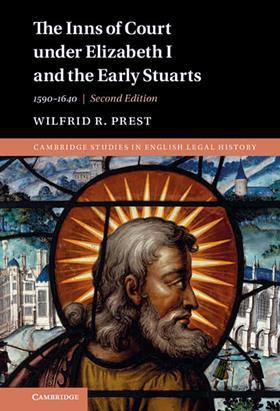Time’s arrows - life at the Inns before the Civil War
The Inns of Court under Elizabeth I and the Early Stuarts 1590–1640, Second Edition
Wilfrid R Prest
£85, Cambridge University Press
★★★★✩
This is a well-researched book on the development of the Inns in the period up to the Civil War. They weren’t just a training ground for prospective barristers – an alternative university. The book investigates their wider influence on the legal profession and students, methods of teaching and their place in society.
Inns have been called finishing schools for upper-class youth. Until the 1650s, only 10% of Inns’ students became professional lawyers. The rest sought careers in government service, others saw a legal education as a path to fame and fortune, and others did not wish to work at all!

The behaviour of students could be challenging. Rules came in to stop students shooting arrows at doors, to keep their shirts in their doublets, and to talk quietly at meals. Amorous adventures resulted in a £5 fine, which was reduced to £1 if the incident occurred within the Inns’ garden or Chancery Lane. In the 16th century a dress code was introduced to stop students wearing light-coloured clothes or have more than three weeks’ beard growth.
Inns held an advantage over universities as they offered training in common law, not Roman law. Teaching was in the form of lectures and competitive moots, and the Inns founded libraries.
Over time, the Inns’ links with the Crown became strained. Lawyers were intimidated for pursuing their clients’ controversial cases. Charles I inherited his father’s dislike of lawyers. However, parliament supported the legal profession and complained that ‘lawyers have been [prevented from] being faithful to their clients’ attorneys and solicitors have been threatened and some punished for following lawful suits’. Plus ça change.
The book ends with the increasing religious and political tensions in the mid-17th century culminating in the Civil War. After the Restoration the Inns’ influence declined. While they retained control over entry to the profession, unlike some of their contemporary guilds, the Inns became licensing associations, clubs, lodgings and offices.
David Pickup is a partner at Pickup & Scott Solicitors, Aylesbury































1 Reader's comment